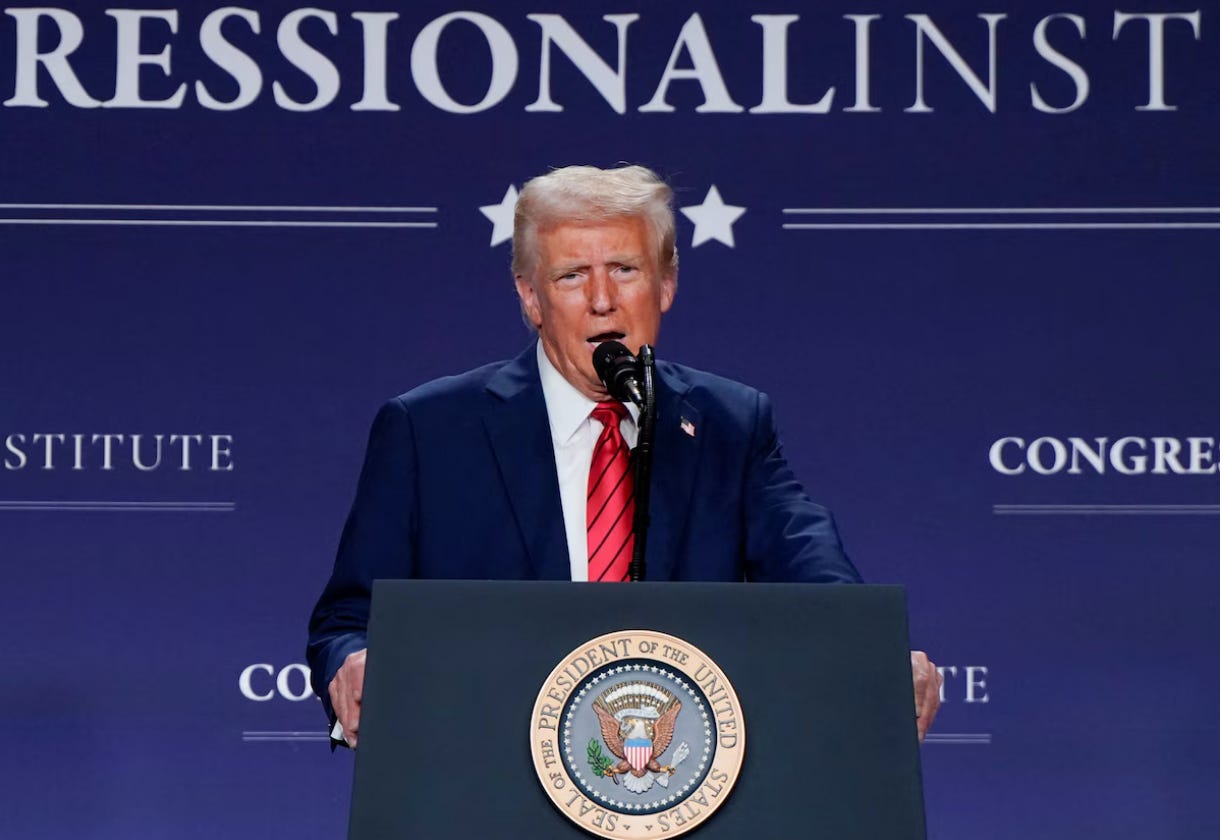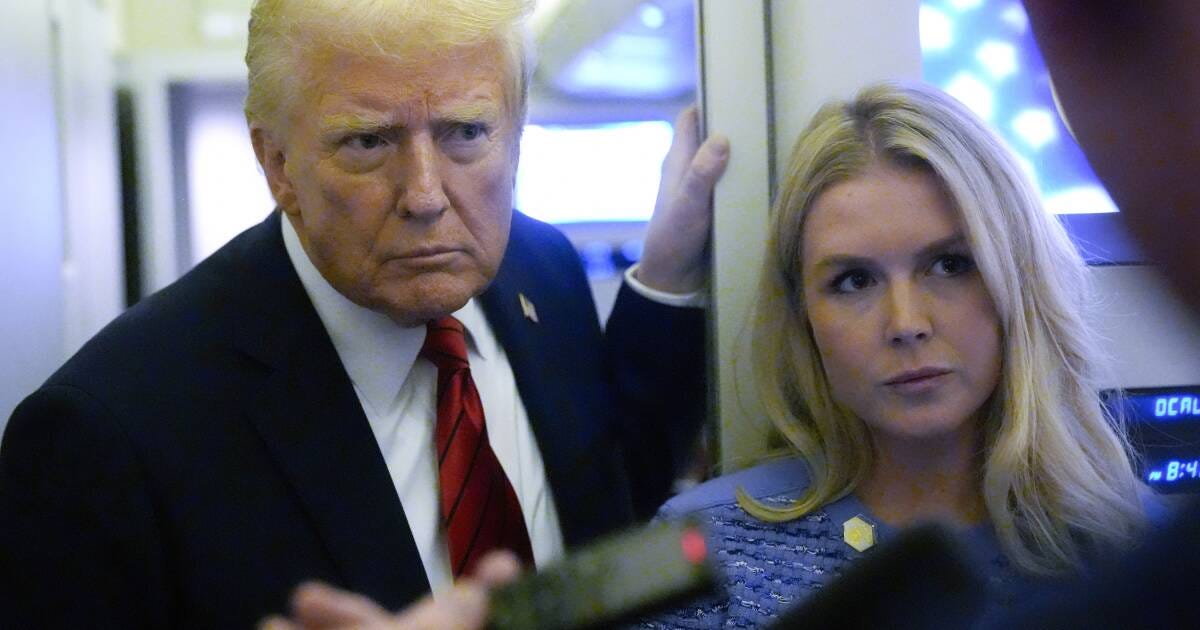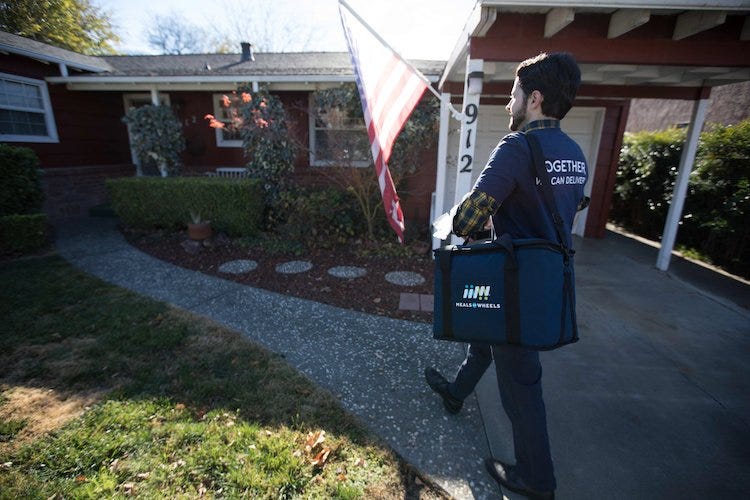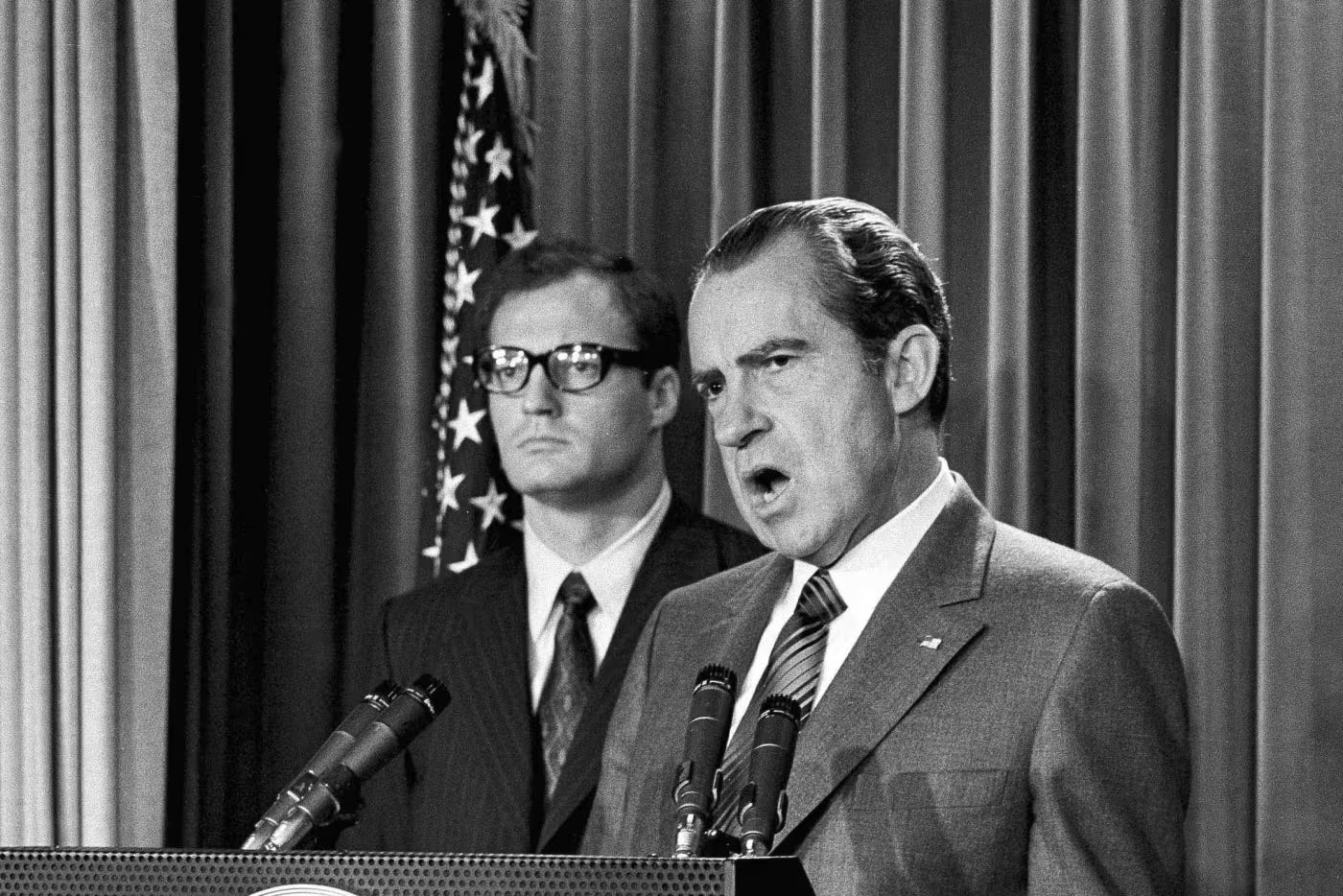Constitutional Crisis?
Did one just start with a two page memo?
We normally think of constitutional crises as starting because of things like civil wars or assassinations. Was one just started by a two-page memo?
That’s what several lawmakers are saying after the Trump White House issued a far-reaching memorandum late Monday night directing federal agencies to pause all federal grants and loans, until officials have studied whether they are “consistent with the law and the president’s priorities.”
The memo listed “financial assistance for foreign aid, nongovernmental organizations, DEI, woke gender ideology, and the green new deal” as among the programs the Trump administration was trying to defund.
The move unleashed immediate confusion across the country, as state and local governments wondered how much of the $1 trillion they receive from Washington would be affected, and organizations providing housing, food assistance, and more prepared for major changes.
“This order is a potential 5-alarm fire for nonprofits and the people and communities they serve,” Diane Yentel, the president of the National Council on Nonprofits, wrote on X, adding that it could “decimate thousands of organizations and leave neighbors without the services they need.”
On Tuesday, three minutes before the order was set to go into effect, a federal judge paused it until next week.
I’ll walk through the legality of the order in a minute, but first I want to answer the question that’s probably on your mind: How will this impact Americans like you?
What WON’T be affected
There’s a lot we don’t know — I wasn’t kidding about the “immediate confusion” — but we do know that some key programs will not see any changes to their funding.
“Nothing in this memo should be construed to impact Medicare or Social Security benefits,” the directive says in a footnote. Both programs (each of which impact around 70 million people) will continue on untouched.
The memo also says that any federal assistance provided “directly to individuals” will be spared… but that’s a little less clear-cut. The federal government distributes vast sums of money each year, and most of it goes through nonprofit organizations or state/local governments before reaching Americans directly.
However, a follow-up memo on Tuesday offered more clarity, announcing more programs that won’t be paused: Medicaid, food stamps, Pell grants for college students, Head Start for pre-schoolers, and assistance for renters, farmers, and small businesses.
Not all of these programs go “directly to individuals,” though — so questions continued to pop up throughout Tuesday. Despite the promise that Medicaid would go untouched, several state governments reported they were locked out of the portals they use to manage the program, which is jointly administered by the federal and state governments and offers health care to 72 million low-income Americans.
Asked about the Medicaid discrepancy on Tuesday, White House press secretary Karoline Leavitt told a reporter, “I’ll check back on that and get back to you.” White House officials later said that the portal outages were unrelated to the funding freeze and reiterated that Medicaid would not be impacted.
What WILL be affected
The follow-up memo left it unclear which other programs would be halted if the order eventually goes into effect. According to a spreadsheet sent to federal agencies — but not yet made public — 2,625 grant programs were on the chopping block.
Taking the full universe of federal grants (minus the ones the White House has explicitly carved out), that could include grants that go to:
Local police and fire departments
Veterans’ housing
Cancer research
Infrastructure projects
Disaster aid
Community health centers that serve the uninsured
And numerous other programs across the country that rely on federal dollars to keep running.
“My office just got a phone call from a domestic violence shelter — the only one serving multiple counties — that says they may have to close their doors if President Trump doesn’t reverse course,” Sen. Mark Warner (D-VA) said on X. Many similar stories will likely emerge in the next few days.
More than one-third of the budget for Meals on Wheels, which delivers 2 million meals a day to senior citizens, comes from Washington. The organization has said it does not know whether or not the funding they receive counts as going “directly” to individuals.
“If in fact this order includes the Older Americans Act, this would presumably halt service to millions of vulnerable seniors who have no other means of purchasing or preparing meals,” a spokesperson told HuffPost.
The Trump administration has not indicated how long the pause would last. At her briefing, the White House press secretary said affected organizations would have to appeal to the Office of Management and Budget to restart their funding on a case-by-case basis in the meantime.
But, wait: is this even legal?
Let’s start with a quick civics refresher.
Article I of the Constitution creates Congress and gives it the power to pass laws, including those involving government spending. Article II of the Constitution creates the President, and mandates that he “take Care” that those laws be “faithfully executed.”
Many of the funds at issue here were directed to be spent by laws that Congress passed — which would seem to suggest, based on that simple reading of the nation’s founding document, that the Trump administration is required to spend them. (Now we’re getting to the “potential constitutional crisis” part!)
When presidents refuse to spend congressionally allocated funds in this manner, it’s known as impoundment. Trump is far from the first president to claim impoundment powers. In fact, for the first 200 years of American democracy, it was common for presidents to do so.
The first time a president tried to do this was in 1803, when Congress approved $50,000 — about $1.4 million today — in government funds to buy new boats for the Navy to station on the Mississippi River.
Thomas Jefferson was president at the time. When he saw the new funds, he essentially said: “Nah, I’m good!”
He didn’t think it was that big a deal, telling Congress towards the end of that year’s State of the Union address:
The sum of $50,000 appropriated by Congress for providing gun boats remains unexpended. The favorable and peaceable turn of affairs on the Mississippi rendered an immediate execution of that law unnecessary, and time was desirable in order that the institution of that branch of our force might begin on models the most approved by experience.
That set a precedent that most of Jefferson’s successors followed — until, eventually, one took it a little too far.
When Richard Nixon took office in 1969, he began impounding dramatically more than previous presidents had ever thought to do. By 1973, he had refused to spend more than one-third of all domestic discretionary spending OK’d by Congress.
Finally, lawmakers had had enough. They passed the Impoundment Control Act, which set sharp limits on a president’s impoundment powers.
Under the 1974 law, the president can still theoretically decline to spend funds approved by Congress — but only if they send a formal request to Congress, and if the request is approved within 45 days. If Congress does not approve the President’s request, then the executive branch has to spend the funds, according to the law. That’s how things have worked ever since.
Trump sent no such request, which is why Democrats quickly labeled the move unconstitutional. Congress controls the power of the purse, they say; this represents a president trying to snatch it back, despite the Constitution and the 1974 law.
The White House, of course, sees things differently. “This is within the president’s power to do it and therefore he’s doing it,” Leavitt said.
Trump has argued that the Impoundment Control Act is what’s unconstitutional. In his view (which presidents before Nixon also shared), laws passed by Congress should be understood as the ceiling of how much money the president should spend, not the floor. During his campaign, he promised to challenge the Impoundment Control Act if elected, arguing that it illegally constrains executive power.
And it appears we’ve arrived at that challenge.
Like most everything else in our system, it will ultimately be up to the courts to decide who’s right.
Six state attorneys general and organizations including the National Council of Nonprofits have already filed lawsuits, and a federal judge has already taken an initial step to pause the order while those legal challenges continue. In all likelihood, the issue will eventually find its way to the Supreme Court.
Once there, Trump will be facing an uphill battle. The Supreme Court has never ruled explicitly on the constitutionality of the Impoundment Control Act — but it has expressed skepticism towards the theory of impoundment powers, including in the 1974 case Train v. City of New York.
Even the Department of Justice, back in 1988, has said there is nothing in the Constitution that gives a president the right to impound. So even if the Impoundment Control Act is eventually found to be unconstitutional, that doesn’t mean that impoundment is inherently constitutional on its own.
After only a week in office, Trump is trying to embrace a new interpretation, pushing executive power farther than any president since Nixon. In the coming weeks, we’ll see how far the judicial branch is willing to let him take it.








A power hungry man who thrives on chaos and theatrics. Hoping and praying the Republicans in congress grow a backbone and put a stop to these shenanigans. We're only a week into his term. Lord have mercy on us all.
I feel that this requires longterm thinking. Pres Trump is pushing the bounds of the powers of the presidency in this case and in others. Whether or not you believe Pres Trump has honorable intentions, one day there will likely be a president who would use the additional powers to further dismantle the checks and balances that our country was founded on. I strongly believe in checks and balances. I also believe that Congress has done a disservice to our nation with its infighting, lack of willingness to compromise, and complacency. Many are frustrated. They want the government to begin working for them. Because of this they are willing to allow the president to accumulate more power, but we need to be cautious. Democracy is fragile. Checks and balances safeguard democracy. I believe that we the people also have a responsibility to our beautiful Constitution. We the people have a responsibility to make our voices heard and call for checks and balances to be upheld while holding Congressional leaders to account. We need to think longterm. I hope that when this and other similar situations come to Supreme Court, that they think longterm as well and uphold the safeguards that protect our democracy.